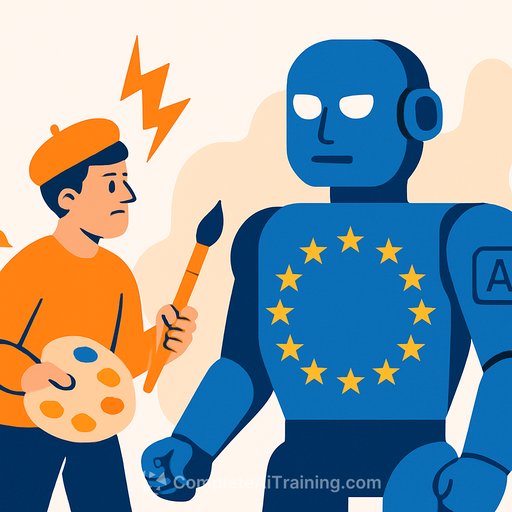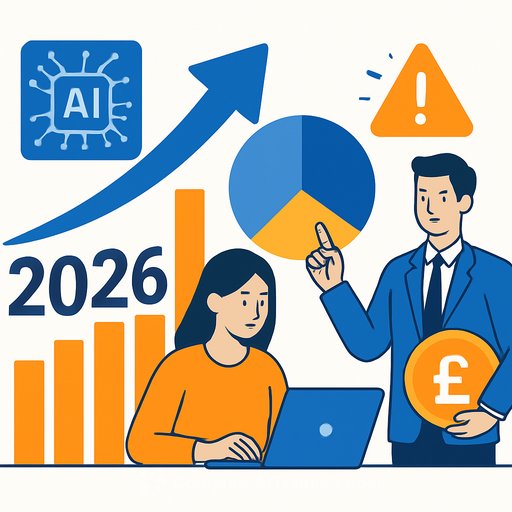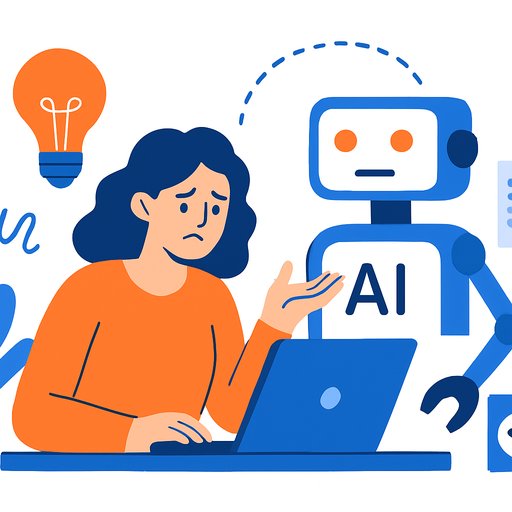Creative Industries Condemn EU AI Act Implementation as a ‘Betrayal’
A coalition of European creative industry groups, representing millions of authors, performers, publishers, producers, and other rights holders, has openly criticized the European Commission’s implementation of the AI Act provisions. These measures, intended to protect intellectual property rights amid the rise of generative AI, have been called a “betrayal” of the law’s original purpose.
The backlash follows the recent release of the Commission’s General-Purpose AI (GPAI) Code of Practice on July 10 and related guidelines on July 18. These are part of the EU’s first-ever AI regulation, which officially came into force on August 1, 2024. From August 2, obligations for providers of GPAI models became effective, requiring companies to document technical details about their models and establish policies to comply with European copyright laws.
Core Concerns of the Creative Sector Ignored
Despite active engagement from rightsholder communities throughout the drafting process, the coalition argues that the final regulations ignore their key concerns. According to their joint statement, the feedback from those the provisions were meant to protect has largely been overlooked, contradicting the objectives of the EU AI Act.
The coalition includes major organizations such as CISAC, ICMP, IFPI, and IMPALA. They describe the outcome—the GPAI Code of Practice, Guidelines, and Template—as “not a balanced compromise” but rather a missed opportunity. It falls short of providing meaningful protection for intellectual property rights in the context of generative AI and fails to fulfill the promise of the EU AI Act.
Dispute Over Article 53
The main point of contention is Article 53 of the EU AI Act, which aims to help copyright holders enforce their rights under EU law. The creative industries argue that the current approach benefits AI model providers who often infringe copyright by using vast amounts of scraped content to train their models.
They emphasize that this undermines the law’s intent and places creators at a disadvantage while allowing AI companies to exploit copyrighted works without adequate compensation or control.
Economic Impact of Creative Industries
The coalition highlights the significant economic contribution of creative industries in Europe—they generate nearly 7% of the EU’s GDP and employ approximately 17 million people. This impact exceeds that of sectors like pharmaceuticals, automotive, or high-tech industries.
They warn that generative AI models, which rely heavily on scraping online content, cause damage and create unfair competition. Protecting cultural and creative sectors is essential, not only because they form the foundation of European culture but also because they are vital to the Single Market.
Calls for Reassessment and Stronger Enforcement
The coalition firmly rejects any notion that the Code of Practice achieves a fair and workable balance. They describe it as a “betrayal” of the EU AI Act’s goals and call on the European Commission to revisit the implementation package. The demand is clear: enforce Article 53 more effectively to ensure that intellectual property rights are genuinely safeguarded in the age of generative AI.
Industry Responses: Meta and Google
- Meta (Facebook owner) has declared it will not sign the EU AI Code of Practice. Joel Kaplan, Meta’s global affairs chief, stated that the code introduces legal uncertainties for AI developers and imposes requirements beyond the AI Act’s scope.
- Google, on the other hand, has committed to signing the Code. The company hopes the Code will help European citizens and businesses access secure, high-quality AI tools promptly. Google projects that AI could boost Europe’s economy by 8% (€1.4 trillion) annually by 2034 if deployed widely.
- Google also emphasized its commitment to working with the EU’s AI Office to ensure the Code remains proportionate and adaptable to AI’s fast development, advocating for a pro-innovation approach that benefits all stakeholders.
For creatives looking to stay informed and adapt to the evolving AI landscape, exploring specialized training can be valuable. Courses focused on AI tools, prompt engineering, and copyright implications are available at Complete AI Training.
Your membership also unlocks:






